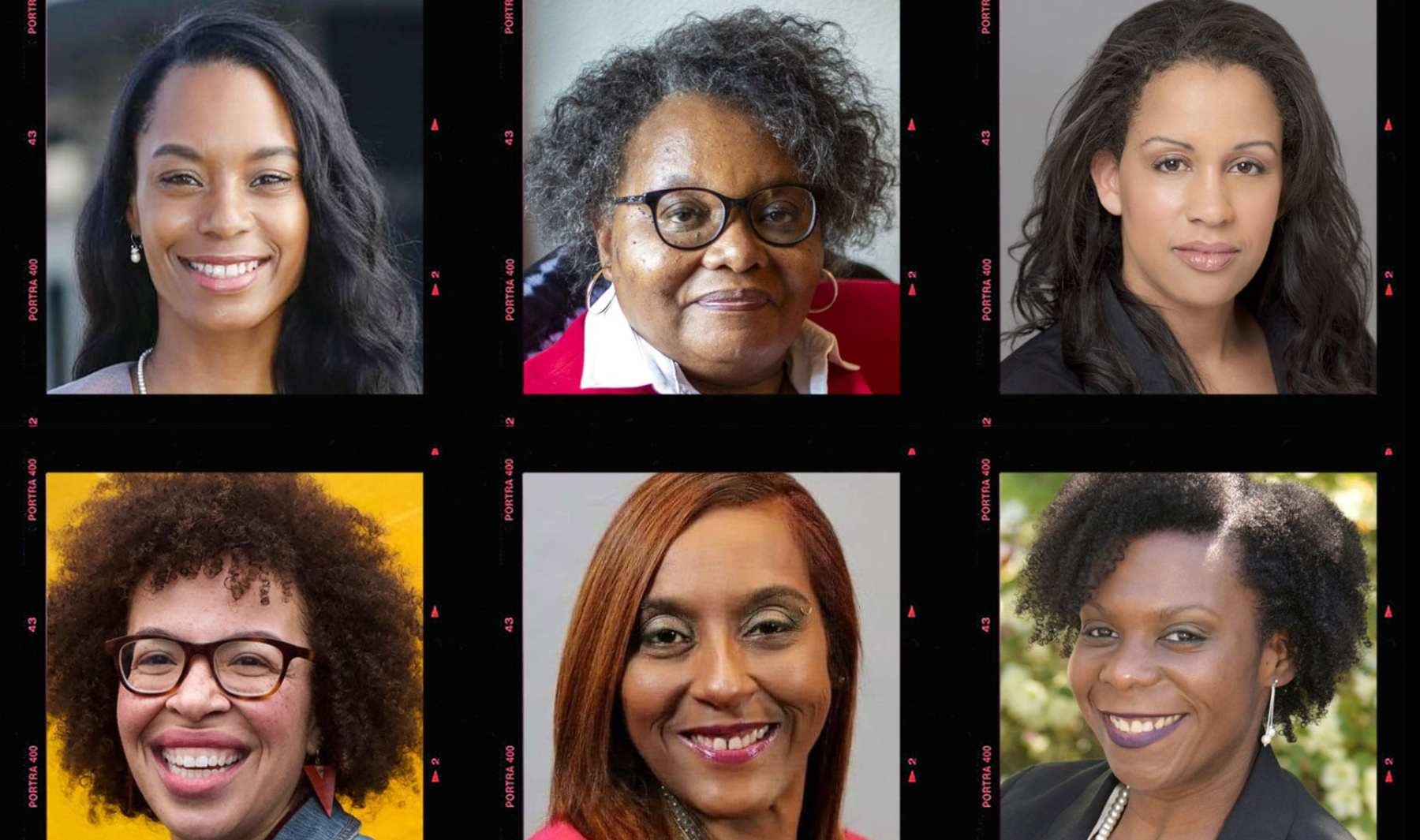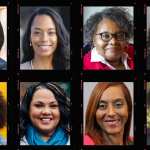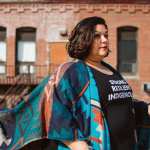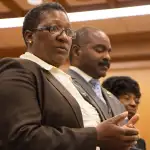We’re the only newsroom dedicated to writing about gender, politics and policy. Subscribe to our newsletter today.
Six Black women have been elected to the Washington State Legislature, tripling their representation in a statehouse that continues to be led predominantly by White male lawmakers.
The women — two incumbents and four newly elected lawmakers — were endorsed by Opportunity PAC, a political action committee founded this year to support their candidacies. At least 10 Black women ran for Washington statehouse seats this year; Opportunity PAC actively supported eight of them in the lead-up to the November 3 election.
“This moment is so powerful,” said Shasti Conrad, who helped run Opportunity PAC. “To see these women winning and thriving and getting to be themselves while they’re doing it, it’s just really powerful.”
There is no record available showing so many Black women elected to the Washington State Legislature at one time, according to legislative staff for both chambers. An incomplete database of Black legislators also doesn’t show so much collective representation of Black women in the state.
The group are all Democrats: Reps. Melanie Morgan and Debra Entenman, the two incumbents; April Berg, Kirsten Harris-Talley and Jamila Taylor, who were also elected to the Washington House of Representatives; and T’wina Nobles, who was elected to the Washington State Senate. She is the first Black legislator in the 49-person chamber in a decade.
Nobles, who will be only the second Black woman elected to the Senate, said she is “thrilled” to have so many Black women joining her in the legislature.
“Knowing that we are increasing the amount of representation, the amount of diverse voices, is long overdue,” the 38-year-old said.
The wins in Washington come at a time when statehouses across the country remain predominantly White and male. Washington’s 147-member legislature is overwhelmingly male — 58 percent, according to the National Conference of State Legislatures. Even among its women legislators, it’s still predominantly White, according to the latest tally by the Center for American Women and Politics at Rutgers University. Its database, which relies on information submitted by lawmakers, notes that aside from two women who identify as Black or African American, eight women in the Washington State Legislature identify as Asian/Pacific Islander, four identify as Hispanic, one identifies as multiracial and one identifies as Native American. There are 54 women who identify as White.
Legislative staff for the Washington statehouse keep track of the number of women lawmakers, but they do not ask members for information like race or ethnicity, sexual orientation or religion. The National Conference of State Legislatures estimates that 41.5 percent of Washington’s state lawmakers are women. That is above the current national rate of 29 percent.
Nationwide, statehouses are gradually changing. The number of women of color running for statehouse seats has increased by 68 percent since 2012, according to an analysis from the Reflective Democracy Campaign, a nonpartisan organization that works to change the demographics of elected office.
Washington voters also elected Marilyn Strickland, making the Democrat the first Black member of Congress from the state. Strickland, who was born in Seoul, will also be among the first Korean American women elected to Congress (Michelle Steel and Young Kim, both Republicans in California, also won seats).
Brenda Choresi Carter, director of the Reflective Democracy Campaign, said the recent wave of people of color elected in Washington State is interesting. Census data shows 78.5 percent of residents in the state are White.
“It’s not a state that political observers would traditionally look to for a surge in Black representation in elected office,” she said. “So it’s exciting to see it happening all over the political and geographic map.”
Carter’s group also published research in 2019 that determined women of color win their elections at higher rates than any other group. Carter believes it shows how prepared women of color feel they must be when they run for office.
“The system of political gatekeeping and power-brokering is so much more difficult for women of color to break into as candidates, that in order to actually get on the ballot and make it through the kind of vetting process that candidates have to go through, I think women of color have to be extraordinarily qualified,” she said.
Nobles, who helps lead a nonprofit and is a community organizer, also highlighted the additional barriers that Black women and women of color face when running for office. That has an effect on the kind of support they get during the primary and general election. She said support from the community was critical to her success, including the response to racist attacks from a political action committee.
“I hope for future races, people understand that you can’t sit politics out,” she said. “You have to engage. You have to participate to elect the people that you want to represent you. To elect more working-class community members. To elect more Black women. To elect more working moms, more educators. We’re gonna have to get behind those people and pour resources into their campaigns and recognize they’re going to be attacked in the ways that I have been attacked. But we can prevail.”
Harris-Talley, a community organizer, was among the women elected to the Washington House of Representatives. She credited Opportunity PAC for helping to elevate her campaign (the committee was not allowed to coordinate with the campaigns, but highlighted the candidates through mailers and other paid advertisements), but she noted that multiple dynamics were at play during the election. She believes voters were looking for change to better address the inequities brought on by the pandemic and sustained racial injustice.
Harris-Talley, who is queer, is believed to be the first out Black person elected to the legislature. She said there was “joy and happiness” in being a part of a historic class of Black women, but she recognizes that it took too long.
“It’s sobering and sad to think that it’s 2020, and that that’s the case in Washington State,” the 41-year-old said. “It speaks to the fact of the history of how this state was founded. It speaks to how little voice in change Black people have been given or elevated.”
Following the death of George Floyd this summer, Mona Das, a state senator in Washington State who was born in India, said she wanted to increase representation in the statehouse. She quickly helped launch Opportunity PAC.
“It’s about seizing the moment,” said Das, who is also a Democrat. “Never in history has there been so much support to elect women of color.”
Conrad, who estimates the PAC raised about $300,000 this election cycle, said the group plans to help women of color candidates in the future, including local races next year. The committee has also established a fund that will help nonprofit organizations support women of color in leadership, with the hope of encouraging them to run for office, according to Conrad.
“We’re really excited about the work and the opportunity that we have to keep this going,” she said.
Research shows that Black women’s political representation remains incremental. But between 2018 and 2019, they saw the largest gain in state legislative representation since 1994.
“When you’ve got a room full of Black women, then you’ve got something to reckon’ with,” said Gloria Butler, a 78-year-old senator in the Georgia State Senate.
Butler is among the group of Black women in the 236-member Georgia Legislature, which has 72 women (there are 37 women who identify as Black or African American, according to CAWP). She said there is political power to get things done when Black women work together.
“They have a burning desire to make a difference. That’s a force. And you can make anything happen when you get those kind of women in one room.”







